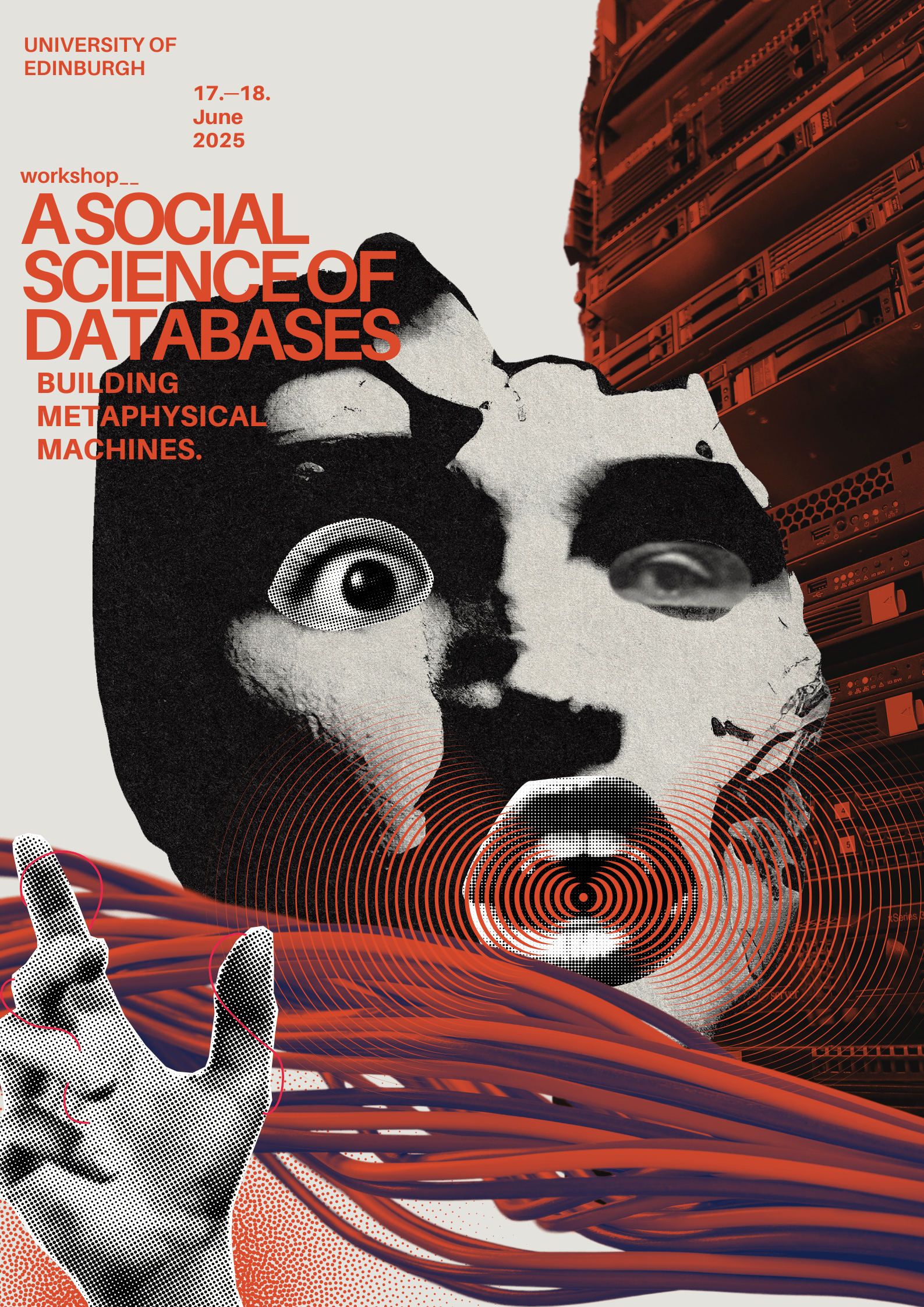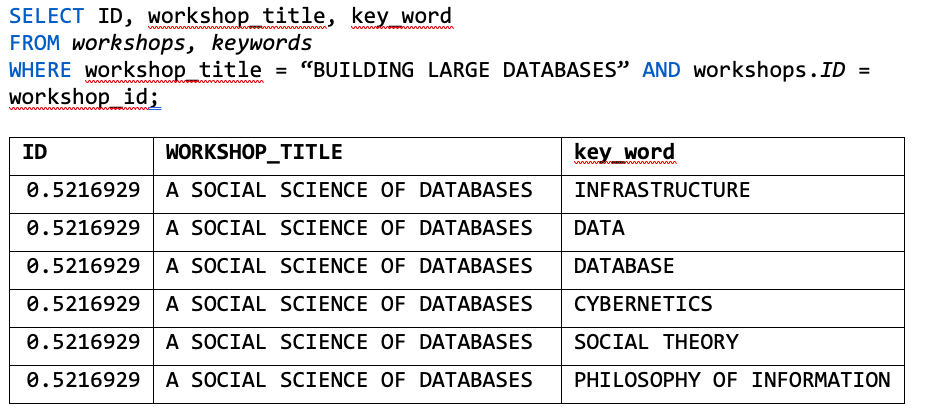A Social Science of Databases -- Closed Workshop
Location
University of Edinburgh
A SOCIAL SCIENCE OF DATABASES: BUILDING METAPHYSICAL MACHINES.

Contemporary society is marked by a will to data. The accumulation of a form of empirical material that is tabulated, quantifiable and ontologically fixed as ‘data’ is now a de facto imperative for the improvement of society ethically, normatively, and scientifically. What Hoeyer has called ‘intensified data sourcing’ (Hoeyer, 2023) has in this way become a prominent feature of public institutions, private organisations, and —increasingly— of technologies of the self (oft rendered material through bespoke and individuated ‘smart’ devices whose primary function is the production of ‘data’).
Social scientists attending to data practices have evidenced the sociality of data usages (Beaulieu & Leonelli, 2020), of processes of transformation in creating data (Bowker & Star, 1999), and of the curation of data towards instrumental purposes (Tempini, 2021). In so doing data has been productively theorised and empirically located as a socio-material practice. However, less has been said about the machines built to store and manage data; about data infrastructures. These machines represent a novel opportunity for understanding our contemporary societies. Where data sourcing often prefigures its usages, where value is located not in the ends data is put to (in the knowledge that is produced), but in the presence of data at all (in the size and ‘quality’ of the database) (See: Cuffe, 2025), the understanding of the machines which house data becomes a more urgent empirical problem.
This workshop brings together scholars thinking about the creation, maintenance, and gestalt qualities of the machines that house and transmit data themselves; about databases. Participants will discuss their work on the technical and physical development of databases from a social science, historical, critical humanities or philosophical perspective. The workshop aims to outline a social science of databases that engages critically with: data ontologies, standardised languages, SQL, NoSQL, ‘blob’ storage, server farms, cloud computing, power requirements, caballing, microprocessor technologies, the functioning and scales of binary digits, solid state drives, hard disks, tape, ‘cyber’ security, physical security, and the aesthetics of databases.
The workshop will take place over two days, with one day for paper presentations, and the second day for discussion between workshop participants with the hope of advancing a theory of databases, and solidifying future collaborative endeavours as panels, conferences, a journal special edition or an edited collection.
Beaulieu, A. & Leonelli, S. (2021) Data & Society: A Critical Introduction. Washington, D.C: SAGE Publications Ltd.
Bowker, G. C. & Star, S. L. (1999) Sorting Things Out: Classification And Its Consequences. Cambridge, Mass. ; MIT Press.
Cuffe, R. (2025) Data, waves and wind to be counted in the economy. BBC News [Online]. Available at: https://www.bbc.co.uk/news/articles/czedpnen168o [Accessed: 10/03/2025]
Hoeyer, K. (2023) Data Paradoxes: The Politics of Intensified Data Sourcing in Contemporary Healthcare, London: MIT Press.
Tempini, N. (2021) Data curation-research: practices of data standardization and exploration in a precision medicine database. New genetics and society. [Online] 40 (1), 73–94.